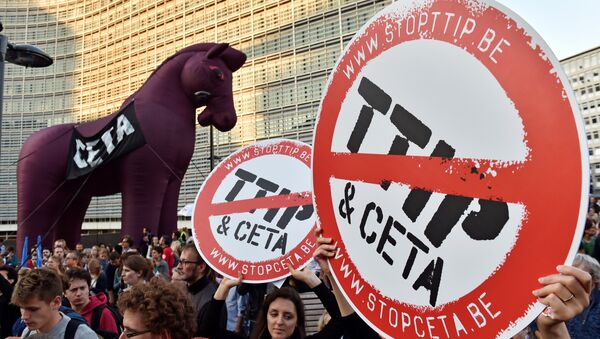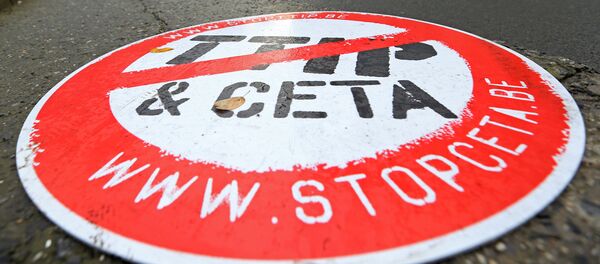"I do not believe that we will have a solution [for the CETA] this week. That seems very, very difficult to me. Let's see what happens today in Belgium. The issue is primarily between the government in Brussels and the federal government of Belgium and the Walloon Government. We will see if they agree today. On this I am skeptical. But I think that they would agree [eventually]," Schulz told Deutschlandfunk radio.
On Thursday, the 28-nation bloc and Ottawa were expected to sign CETA at the joint EU-Canada Summit. However, on Monday Belgian Prime Minister Charles Michel said the nation was "not in a position to sign CETA" amid the Walloon government, the Brussels government, the government of Federation Wallonia-Brussels and the French Community Commission concerns about the deal. Under the Belgian federal laws, every region has a right to reject the agreement.
CETA aims to establish a free trade zone between Canada and the European Union, scrapping more than 98 percent of the existing tariffs between Ottawa and Brussels. Opponents fear it would undermine standards and regulations on environmental protection, health, safety and workers' rights.



